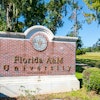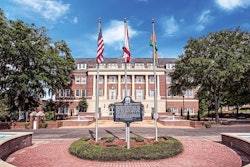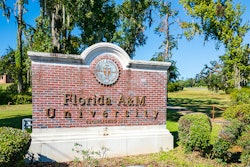Taking a Stand on the Movement
Some in HBCU Community Oppose Bachelor Degree Programs at
Community Colleges, Others Say Wait and See
As president of Jackson State University, Mississippi’s largest four-year historically Black university, Dr. Ronald Mason has a clear position on the prospect of the state’s community colleges offering four-year degree programs. While state officials struggle with fiscal issues, it “doesn’t make a great deal of sense” for two-year colleges to do the job of four-year schools, he says.
“It’s argued by the community colleges that they can provide four-year teacher education programs. There are alternate routes for teacher certification,” Mason says about the current discussions by Mississippi officials to have the state’s junior colleges develop bachelor-degree teacher education programs.
“It’s better for the state to invest in (the senior colleges) to do a better job than to start new programs in two-year schools,” he says.
In Florida, community colleges happen to be offering four-year degree programs in three communities where three private historically Black colleges exist. Dr. Willie Kimmons, a former college president and veteran academic administrator who lives in Daytona Beach, Fla., sees this encroachment of two-year institutions as yet another threat to the existence of historically Black institutions whether they are private or public. He worries that the baccalaureate movement is just the latest wave of competitive challenges in higher education that have too often rendered Black institutions vulnerable to closing down, having to merge with larger institutions, or becoming a majority White school.
Though students at Bethune-Cookman College in Daytona Beach, Edward Waters College in Jacksonville and Florida Memorial College in Miami are more likely to hail from places distant from their schools, they are not immune from noting that nearby community colleges are beginning to offer bachelor degree programs, Kimmons declares.
“These students are struggling to pay for their private college education, and they can be lured away by these community college programs,” Kimmons says.
While a handful of Black college leaders, supporters and officials have begun to oppose the community college baccalaureate movement in certain states and communities, the movement is very much in the early stages of emerging as an issue for national leaders and advocates of historically Black institutions.
“This (movement) is something around which we need to have more dialogue,” says Dr. William B. Harvey, vice-president and director of the office of minorities at the American Council on Education (ACE).
Dr. N. Joyce Payne, the director of the office for the advancement of public Black colleges at the National Association of State Universities and Land-Grant Colleges, says the baccalaureate movement doesn’t appear that it would affect historically Black institutions any more than it would majority White schools. However, she cautions that HBCU officials and supporters should keep close watch on the movement.
Sorting out the issues
To some higher education leaders, the community college baccalaureate movement represents just one of several issues over which the HBCU community and community college leaders need sorting out given the growing presence of African Americans in community colleges, especially in the South where most HBCUs are based. Harvey at ACE concedes that there could be issues between community colleges and historically Black schools, such as the development of transfer agreements and not getting sufficient attention by policy-makers and officials. Payne says current social and economic realities are having the effect of channeling many Blacks into community colleges who deserve to start their higher education careers in four-year institutions.
Having more dialogue between HBCUs and community colleges may be complicated by the fact that there’s no national consensus about whether there’s an appropriate percentage of African Americans that should be enrolled in community colleges in comparison to four-year institutions. Nationally, 42.8 percent of Blacks in higher education were enrolled at community colleges in 2000 while just 37 percent of Whites in higher education attended community college, according to the U.S. Department of Education.
Should leaders and advocates pushing for Black progress in higher education be concerned that between 1994 and 2000 the percentage of Blacks attending community colleges in 16 southern states rose from 38.9 to 41.1 percent while Blacks nationally saw community college enrollment increase from 42 percent to 42.8 percent? In 11 of those 16 states, Black community college enrollment saw percentage increases between 1994 and 2000, according to U.S. Education Department statistics.
Payne says negative variables play too prominent a role in driving the patterns of Black higher education enrollment. Tuition increases, the elimination of remedial education at four-year public colleges, reduction of student financial aid grants, a decrease in the number of public colleges with open admissions and the declining use of race-conscious affirmative action are among some of the national trends from the past decade observers say are having a negative impact on minority students. Added to those factors is the lack of adequate K-12 schooling, which leaves bright but poorly educated students with “few choices” and works to exclude them from enrollment into four-year schools directly out of high school, Payne notes.
“There’s no question that there’s too much channeling of African American students into two-year institutions,” Payne says, adding that this is the consequence of negative conditions fueling higher Black community college enrollment.
That excessive channeling becomes most pronounced when states with a poor record in education raise admissions standards at the public four-year institutions and leave remediation largely in the hands of the community college system, Payne says.
“To me, that is a much bigger issue,” than the trend of two-year schools offering four-year programs, she says. “Too many Black students get lost in the system, and are not pushed into areas where they can be really competitive in the job market as graduates.”
Conditions on the Ground
Jackson State’s Mason says it’s difficult to say whether a higher percentage of Black community college enrollment over a certain period of time is good or bad, particularly if total enrollment of Blacks in higher education is increasing, which is the case in Mississippi.
“You don’t want to discourage students about the choices they are making if they’re going into higher education,” he says.
Despite a Mississippi desegregation case ruling in the 1990s that mandated higher admissions standards, thus eliminating open admissions in the process at Jackson State and the state’s other two historically Black schools, enrollments at the three schools have largely been growing for the most part since 1997.
From fall 1997 to fall 2002, Jackson State experienced a 21.3 percent growth in undergraduate enrollment and historically Black Mississippi Valley State University had a 36.4 undergraduate enrollment increase. Though Alcorn State University, another historically Black school, had a decrease of 0.4 percent in its undergraduate enrollment from fall 1997 to fall 2002, its total enrollment grew by 10.6 percent during those years.
“We lost students when the standards were raised. But since that initial loss, our enrollments have gone up,” Mason says.
Dr. Edward Jackson, the chancellor of Southern University in Baton Rouge, says the move from open admissions to selective admissions resulted in an expected enrollment drop at the historically Black school. The selective admissions went into effect due to a 1994 desegregation court order. Grambling State University, the other historically Black campus in Louisiana, has not yet been subject to changes in its admissions policies.
“We lost the bottom 15 (percent) to 20 percent of our freshman class when we went to selective admissions in the fall of 2001. We believe many of those students went to the Baton Rouge Community College,” Jackson says. Baton Rouge Community College opened in 1998.
Jackson is optimistic that Southern will see an increase in the number of freshman students enrolling this coming fall. Total enrollment at Southern has fallen from 9,027 in fall 1999 to 8,575 in fall 2002.
“We’ve stepped up our recruitment and the students in the high schools know what we require. Enrollment has started to rise,” he says, referring to spring 2003 enrollment figures.
Jackson believes Southern is better off in the long run as a school with selective admissions rather than as an open admissions institution. The school will be better positioned to develop new academic programs and attract high-quality faculty members, according to Jackson. He says that Southern will experience higher retention rates, citing the fall 2001 to fall 2002 freshman to sophomore retention rate was 72 percent. Freshman to sophomore retention from fall 2000 to fall 2001 was 64 percent, according to Jackson.
“Our graduation rates will go up,” he predicts.
— By Ronald Roach
© Copyright 2005 by DiverseEducation.com















